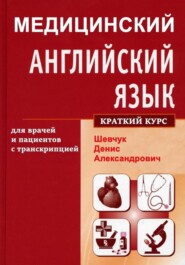скачать книгу бесплатно
Онкологи
лечащие онкологические заболевания
Психоневрологи
занимается психикой человека
Отоларингологи
лечат горло, уши и нос
Эндокринологи
занимаются эндокринной системой
Гастроэнтерологи
занимаются желудочно-кишечным трактом (ЖКТ)
General practitioners (G.P.) ['??n
r
l pr?k't??n?z (?i:.pi:)]
They may see their patients every year for a “check-up” when healthy [?e? me? si: ?e? 'pe??
nts '?vri j?? f?:r e? “??k-?p” w?n 'h?l?i]. They are usually the first providers of care when patients are ill [?e? ?: 'ju:?u?li ?? f?:st pr?'va?d?z ?v ke? w?n 'pe??
nts ?:r ?l].
Surgeons ['s?:?
nz]
They perform surgery, “operate on” people – cutting into their bodies to remove cancers or repair damaged tissues, etc. [?e? p?'f?:m 's?:?
ri, “'?p
re?t ?n” 'pi:p
l – 'k?t?n '?ntu: ?e? 'b?diz tu: r?'mu:v 'k?ns?z ?: r?'pe? 'd?m??d 't??u:z, ?t's?t
r?]
Anesthesiologists [??n?s??i:zi'?l???sts]
They administer anesthesia so patients will not feel pain during surgery [?e? ?d'm?n?st?r ??n?s'?i:zi? s?? 'pe??
nts w?l n?t fi:l pe?n 'dj??r?n 's?:?
ri].
Radiologists [?re?di'?l???sts]
They interpret X-rays [?e? ?n't?:pr?t '?ks're?z].
Pediatricians [?pi:di?'tr??
nz]
They care for children [?e? ke? f?: '??ldr?n].
Cardiologists [?k?:di'?l???sts]
heart doctors [h?:t 'd?kt?z]
Dermatologists [?d?:m?'t?l???sts]
for skin diseases [f?: sk?n d?'zi:z?z]
Oncologists [?n'k?l???sts]
cancer doctors ['k?ns? 'd?kt?z]
Psychoneurologist [sa?k??nj??'r?l???st]
deals with the human psyche [di:lz w?? ?? 'hju:m?n 'sa?ki]
Otolaryngologists [??t??l?r?n'g?l???st]
treat the throat, ears and nose [tri:t ?? ?r??t, ??z ?nd n??z]
Endocrinologists [??nd??kra?'n?l???sts]
deal with the endocrine system [di:l w?? ?i '?nd??kra?n 's?st?m]
Gastroenterologists [g?str??nt?'r?l???st]
deal with the gastrointestinal tract [di:l w?? ?? ???str???n't?st?n
l tr?kt]
Examination and Functions of a Doctor
Обследование и функции врача Examination and Functions of a Doctor [???z?m?'ne??
n ?nd 'f?nk?
nz ?v ? 'd?kt?]
Перед началом лечения заболевания лечащий врач должен установить диагноз. Врачу необходимо определить этиологию заболевания, патогенез и симптомы, признаки, по которым его можно выявить. Для постановки диагноза используется ряд различных процедур. К ним относятся: сбор анамнеза, физикальный осмотр, пальпация, перкуссия, аускультация (выслушивание), лабораторные исследования и инструментальные исследования. Лечащий врач должен знать объективные и субъективные симптомы и жалобы пациентов, а также то, как долго у больных людей наблюдаются эти симптомы. История текущего заболевания является частью истории болезни (=клинический отчет). История текущего заболевания содержит множество сведений: информацию о пациенте при поступлении, результаты лабораторных и инструментальных исследований, а также о течении заболевания с любыми изменениями симптомов и состояния, точные дозы назначенных лекарств, достигнутые эффекты лечения. История болезни должна быть составлена правильно, в ней должна содержаться точная и полная информация.
Before the treatment of a disease an attending doctor should establish a diagnosis [b?'f?: ?? 'tri:tm?nt ?v ? d?'zi:z ?n ?'t?nd?n 'd?kt? ??d ?'st?bl?? ? ?da???'n??s?s]. It is necessary for a doctor to determine the etiology of the disease, pathogenesis and symptoms, signs by which it can be revealed [?t ?z 'n?s?s
ri f?:r ? 'd?kt? tu: d?'t?:m?n ?i ?i:ti'?l??i ?v ?? d?'zi:z, ?p???'??n?s?s ?nd 's?mpt?mz, sa?nz ba? w?? ?t k?n bi: r?'vi:ld].
A number of different procedures are used to make a diagnosis [? 'n?mb?r ?v 'd?f
r
nt pr?'si:??z ?: ju:zd tu: me?k ? ?da???'n??s?s]. They are: history-taking, physical examination, palpation, percussion, auscultation (выслушивание), laboratory studies, and instrumental studies [?e? ?: 'h?st
ri-'te?k?n, 'f?z?k
l ???z?m?'ne??
n, p?l'pe??
n, p?'k??
n, ??:sk?l'te??
n (выслушивание), l?'b?r?t
ri 'st?diz, ?nd ??nstr?'m?nt
l 'st?diz].
The attending doctor must know objective and subjective symptoms and complaints of patients as well as how long sick people have been having these symptoms [?i ?'t?nd?n 'd?kt? m?st n?? ?b'??kt?v ?nd s?b'??kt?v 's?mpt?mz ?nd k?m'ple?nts ?v 'pe??
nts ?z w?l ?z ha? l?n s?k 'pi:p
l h?v bi:n 'h?v?n ?i:z 's?mpt?mz].
History of present illness makes a part on a case history (=case report) ['h?st
ri ?v 'pr?z
nt '?ln?s me?ks ? p?:t ?n ? ke?s 'h?st
ri (=ke?s r?'p?:t)]. The history of present illness contains a lot of findings: information of the patient on his admission, the results of laboratory and instrumental tests, and the course of disease with any changes in the symptoms and condition, the exact doses of the prescribed medicines, the produced effects of treatment [?? 'h?st
ri ?v 'pr?z
nt '?ln?s k?n'te?nz ? l?t ?v 'fa?nd?nz: ??nf?'me??
n ?v ?? 'pe??
nt ?n h?z ?d'm??
n, ?? r?'z?lts ?v l?'b?r?t
ri ?nd ??nstr?'m?nt
l t?sts, ?nd ?? k?:s ?v d?'zi:z w?? '?ni '?e?n??z ?n ?? 's?mpt?mz ?nd k?n'd??
n, ?i ??'z?kt 'd??s?z ?v ?? pr?s'kra?bd 'm?ds
nz, ?? pr?'dju:st ?'f?kts ?v 'tri:tm?nt]. The case history should be written in a correct way, it should contain the exact and complete information [?? ke?s 'h?st
ri ??d bi: 'r?t
n ?n ? k?'r?kt we?, ?t ??d k?n'te?n ?i ??'z?kt ?nd k?m'pli:t ??nf?'me??
n].
Слова, которые нужно запомнить. Words to remember [w?:dz tu: r?'m?mb?]:
attending doctor [?'t?nd?n 'd?kt?] – лечащий врач (дословно – посещающий);
to establish [tu: ?'st?bl??] – устанавливать;
pathogeneses [p???'?en?s?s] – патогенез;
to reveal [tu: r?'vi:l] – обнаруживать;
signs [sa?nz] – признаки;
history taking ['h?st
ri 'te?k?n] – сбор анамнеза;
auscultation [??:sk?l'te??
n] – аускультация, выслушивание;
percussion [p?'k??
n] – перкуссия (выстукивание);
palpation [p?l'pe??
n] – пальпация;
instrumental [??nstr?'m?nt
l] – инструментальный;
